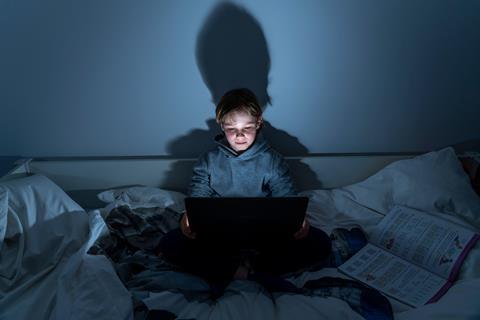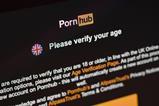After years of delay, the Online Safety Act has introduced age verification for online porn, and with it, greater protections for children. James Mildred says this is a moment for parents to rejoice, but only if Ofcom does its duty and enforces the regulations

Today marks a massive, landmark day in the push for a safer internet.
From now on, robust and effective age verification measures must be in place on all UK pornographic content. This applies to commercial sites such as Pornhub, as well as social media platforms.
For many months, the porn industry has long been aware that this change was coming. It is part of the Online Safety Act and will help reduce the sheer volume of online porn that children, sometimes as young as seven, are exposed to.
Sites that fail to comply could be subject to fines or court orders that prevent them from being accessed in the UK.
The new regulator, Ofcom, will be responsible for enforcing age checks. It is a big responsibility and they must be swift to take action against rogue websites or platforms that fail to comply with the new law.
There is no doubt that age verification on online porn is needed. In fact, parliament had already approved age checks as long ago as 2017. But after years of dither and delay, we have finally arrived at the point where the UK will join other nations like France, Germany and Italy in enforcing age verification.
Protecting children online is one of the chief duties of any society. After all, they are among the most vulnerable in our communities and in the Bible, we read again and again the Lord God calling his people to be on their side and to be advocates for them (Proverbs 31:8-9).
The effects of porn
Sadly, the internet, which can be a source of tremendous good, has been a bit like the Wild West. There’s been very little effective regulation in place. One of the tragic results has been the way children are over-exposed to online porn, including violent and illegal pornographic content.
We know from surveys that 27 per cent of children have seen porn by the time they leave primary school. 60 per cent, meanwhile, only come across it accidentally online. We also know that 79 per cent of young people have seen violent porn.
And the issue is that what they see then shapes and informs their views on what healthy relationships and consent look like.
Since 2021, there’s been a 40 per cent rise in sexual assault cases where both victims are under 18.
Ian Critchley, the National Police Chiefs’ Council lead for child protection has attributed this rise to greater access to violent porn and misogynistic content via smartphones.
As Christians, we have a richer, better story when it comes to sex and relationships. We know a healthy respect for one another, enjoying sex in its proper context of marriage between one man and one woman (Genesis 2:24). We also believe all humans are made in God’s image (Genesis 1:26-28) and therefore have intrinsic value and dignity.
We know from surveys that 27 per cent of children have seen porn by the time they leave primary school
Will it work?
Some have argued that age checks will not work. But the development of new technology means there is a far greater chance of success today than even ten years ago, when CARE first began campaigning for this law change.
Platforms and sites can use credit card checks, facial ageing estimation technology or ID-checks. I accept some tech-savvy young person might find a way around it. But for every teenager who breaks in, there will be thousands more prevented and stopped thanks to this measure.
This is something Christians should rejoice in. Parents especially can rest now knowing that the state has taken proactive action and there is now a stronger safeguarding system in place.
Of course, the new law only works if the communications regulator, Ofcom, does its duty.
It needs to make sure that any site or platform that fails to swiftly comply from today is met with a strong fine. Ofcom can also apply via the courts to stop the website showing its content in the UK.
Ofcom must show it means business because by taking immediate, tough action, it will deter the porn industry from trying to find ways round this new law. This new measure can be highly effective. But only if Ofcom does its duty.
The next great abolition work is to see porn banned in its entirety. I also suspect future generations may look back in astonishment that on our watch, the porn industry was allowed to gain such influence, exposure and profits.































No comments yet